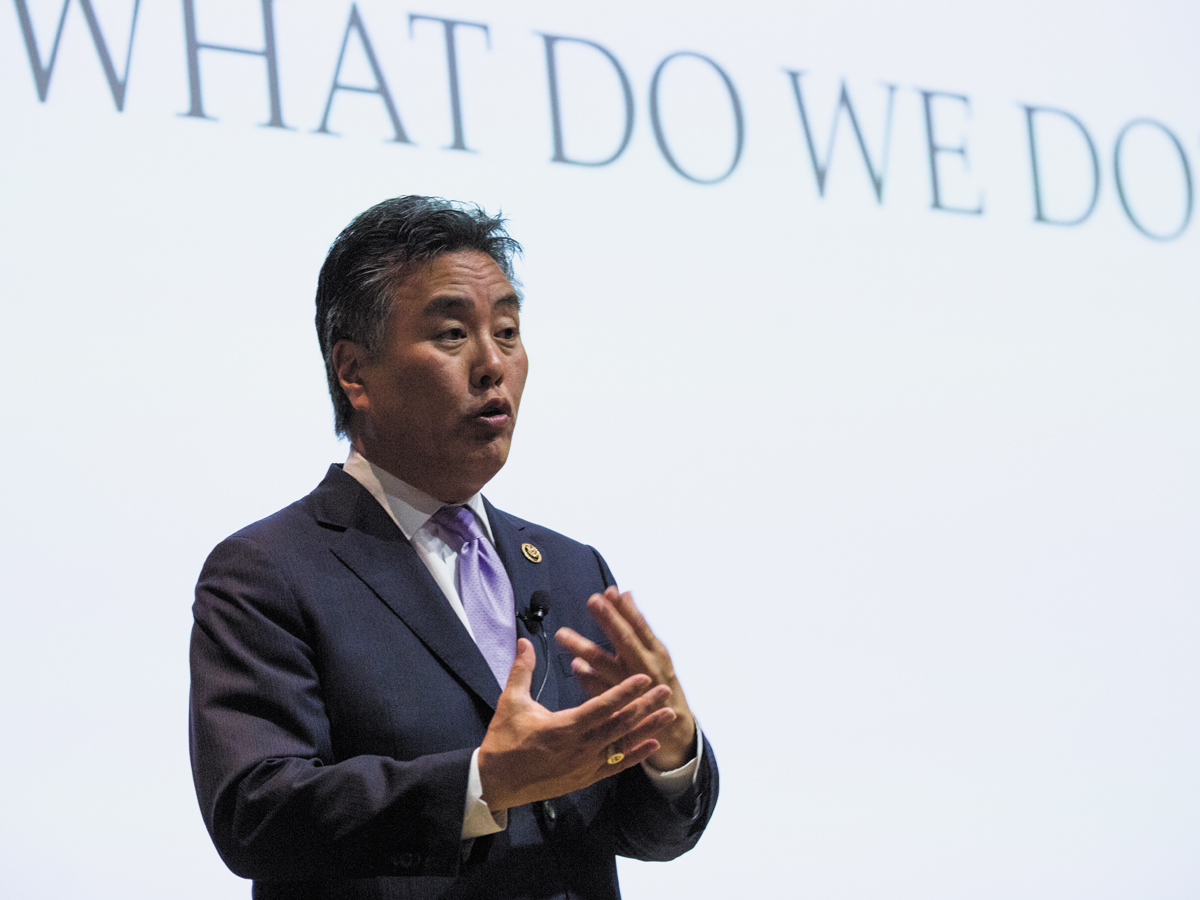
U.S. Congressman Mark Takano spoke to UCR students and faculty last Wednesday about the struggles minority communities face and what can be done to help. The talk was part of the School of Public Policy’s seminar series, in which influential policymakers are invited to discuss both regional and global issues.
Takano, a Democrat, has served on the Riverside Community College Board of Trustees since 1990.
Joined by a packed room, Takano began by outlining the difficulties minorities face and why. “Fifty years after the civil rights movement, minorities in this country are still struggling,” he said. “What is it about our system that is allowing this to happen?”
According to Takano, Hispanics have 10 times less household wealth than white Americans, and people of color make up 42 percent of people in minimum-wage jobs, despite making up only 32 percent of the workforce. He also emphasized Riverside’s rising rent costs, citing a 52 percent increase since 2007, and the prohibitive costs of obtaining a degree for both low-income families and the middle class.
The disparity, he explained, starts with the education system. He attributes much of the problem to the 2001 No Child Left Behind Act, which requires K-12 schools to administer standardized tests to receive federal funding.
“While it played a key role in shedding light on the serious opportunity gap in our system … (the act) instituted a regime of high stakes, low quality standardized tests throughout our K-12 education system, and used those test scores to punish the schools that needed help the most,” he said. “Teachers and schools were forced to spend nearly every minute of instructional time prepping for tests, essentially eliminating room for creative, project-based learning.”
This, he said, leads to students being underprepared for college, forcing them into remedial classes. Thirty percent of African American and 29 percent of Hispanic students were enrolled in remedial college courses in 2008, compared to only 20 percent of white students. Remedial courses, Takano said, lengthen the time it takes to earn a degree, making college more expensive and delaying employment.
Even worse than that, he said, is the crippling loan debt that 81 percent of African American students and 67 percent of Hispanic students are saddled with after graduation, preventing them from starting businesses, buying houses and contributing to the economy to their full potential.
“These are the barriers that a young person faces, and those barriers become even more difficult if you are a young Hispanic or a young African American, so it’s not surprising to see that so many low-income or minority students decide to end their pursuit of higher education,” he said.
Takano offered several solutions to these issues, including repealing No Child Left Behind.
“We must get rid of the ‘one size fits all’ federally prescribed accountability and intervention system,” he said, as well as touting the importance of addressing the cost of higher education and doing more to assist people with “crushing amounts of student debt.”
He also discussed the benefits of raising the minimum wage, which, according to Takano, would bring 2 million people out of poverty.
A student from the audience inquired about the cause of Riverside’s climbing rents. “Is that the result of gentrification, or something else?” she asked, referring to the process by which wealthier residents displace those of lower income, leading to increased property values.
“I think what’s happening here is more complicated,” Takano answered. When people lose their houses to foreclosure, they often look for properties to rent. According to Takano, this leads to “big hedge fund Wall Street folks” purchasing property in bulk and renting them out, driving up costs.
Takano urges today’s students to get involved in the fight for education reform. “For the young people in the audience, there is a seat at the table for you,” he said. “I know you can help make the American dream a reality once again.”








